Authors
Katie Grace Carpenter, M.S.
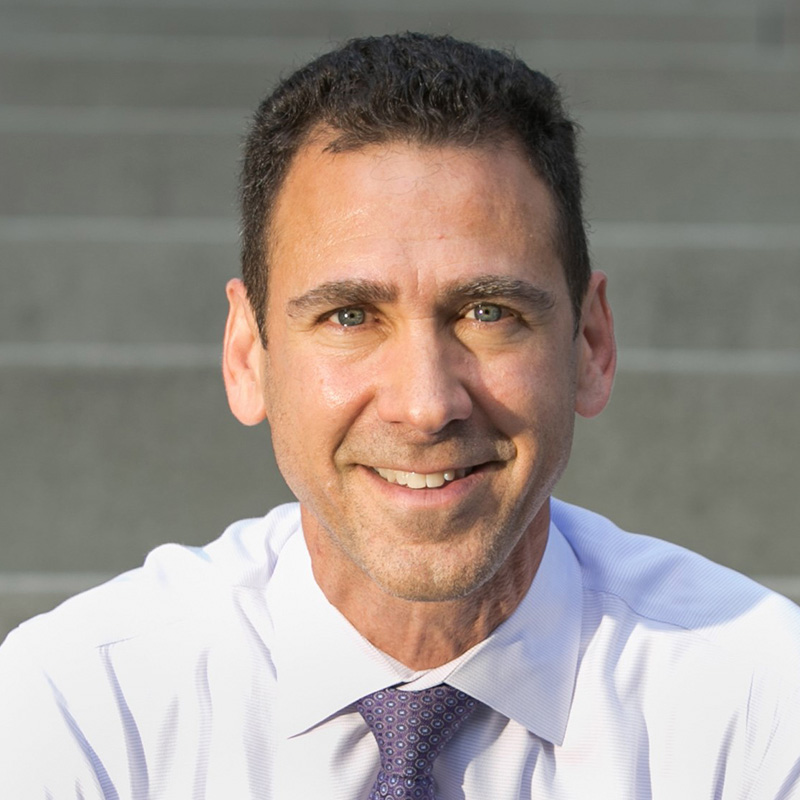
Anthony Carpi, Ph.D.
Anthony is founder and CEO of Visionlearning, an education technology company dedicated to providing everyone, everwhere with an excellent science education. He is a scientist, entrepreneur and author, and has written extensively on the challenges embedded in traditional science teaching materials. He is also a Professor of Environmental Chemistry at John Jay College of the City University of New York, and an active research scientist. He is the recipient of grants from the National Science Foundation, U.S. Department of Education and Department of Defense that have focused on improving science education through the creation of online and offline services and materials. And in 2011, his work mentoring young scientists was recognized with a Presidential Award for Excellence in Math, Science, and Engineering Mentoring awarded by the White House.
-
Biology
- Carbohydrates
- Fats and Proteins
Chemistry
- Atomic Theory I
- Atomic Theory III
- Atomic Theory IV
- Carbon Chemistry
- Chemical Bonding
- Chemical Equations
- Chemical Reactions
- Diffusion I
- Early Ideas about Matter
- Properties of Gases
- Properties of Solids
- States of Matter
- The Mole and Atomic Mass
- The Periodic Table of Elements I
General Science
- Density and Buoyancy
- Temperature
- The Metric System
- The Scientific Method
Math in Science
- Linear Equations
- Measurement
Physics
- Defining Energy
- Thermodynamics I
Process of Science
- Modeling in Scientific Research
- Scientific Ethics
- Scientific Institutions and Societies
- Scientists and the Scientific Community
- Statistics in Science
- The How and Why of Scientific Meetings
- The Nature of Scientific Knowledge
- The Practice of Science
- The Process of Science
- Theories, Hypotheses, and Laws
- Understanding Scientific Journals and Articles
- Using Graphs and Visual Data in Science
- Utilizing the Scientific Literature
Andy Carstens, MA
-
Chemistry
- Chemical Reactions II
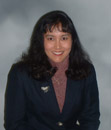
Martha Marie Day, Ed.D.
Martha is a professional educator, seminar leader and consultant who has frequently served as a mentor to science teachers. As an award-winning classroom teacher and university adjunct professor, she has taught courses in chemistry, physics, biology and animal agriculture. Martha has authored articles for The Science Teacher, Tennessee Educational Leadership and The Eisenhower Math/Science Consortium. She has presented numerous seminars and workshops at National and State Science Teacher Conventions on topics such as block scheduling, cross-curricular instruction, classroom management, content area reading, small-scale chemistry and interactive technologies for the science classroom.
-
General Science
- Density and Buoyancy
- Temperature
Bonnie Denmark
-
Scientists and Research
- Ramari Stewart
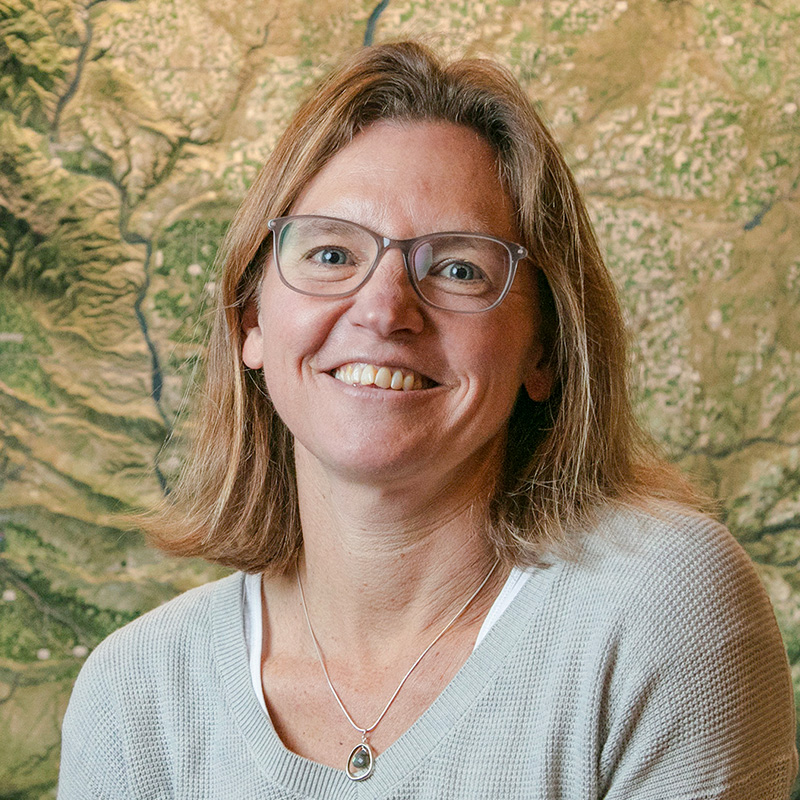
Anne E. Egger, Ph.D.
Anne Egger is a professor at Central Washington University with a joint appointment in Geological Sciences and Science and Mathematics Education. She is also the Executive Director of the National Association of Geoscience Teachers (NAGT) and a leader in NAGT's On the Cutting Edge professional development program. Her work in geoscience education research includes developing and testing new curricular materials for use in undergraduate teaching, analysis of national trends in faculty teaching practices through surveys and syllabi, and the development of workforce and career skills in undergraduate programs. Anne has been an author and editor with Visionlearning since 2001, where she was initially focused on developing Earth science modules. With Visionlearning founder and director Anthony Carpi, Anne is co-author on the Process of Science materials as well. For more information, please visit Anne's web page at CWU or her ResearchGate profile.
-
Earth Science
- Circulation in the Atmosphere
- Deep Time
- Defining Minerals
- Earth Structure
- Earth's Atmosphere
- Factors that Control Earth's Temperature
- History of Earth's Atmosphere I
- History of Earth's Atmosphere II
- Identifying Minerals
- Natural Hazards and Risk
- Ocean Currents
- Origins of Plate Tectonic Theory
- Plate Boundaries
- The Hydrologic Cycle
- The Rock Cycle
- The Silicate Minerals
- Water in the Atmosphere
- Weather, Fronts, and Forecasts
General Science
- The Scientific Method
Math in Science
- Exponential Equations I
- Exponential Equations II
- Linear Equations
Process of Science
- Comparison in Scientific Research
- Data Analysis and Interpretation
- Description in Scientific Research
- Experimentation in Scientific Research
- Modeling in Scientific Research
- Peer Review in Scientific Publishing
- Scientific Controversy
- Scientific Ethics
- Scientific Institutions and Societies
- Scientists and the Scientific Community
- Statistics in Science
- The How and Why of Scientific Meetings
- The Nature of Scientific Knowledge
- The Practice of Science
- The Process of Science
- Theories, Hypotheses, and Laws
- Uncertainty, Error, and Confidence
- Understanding Scientific Journals and Articles
- Using Graphs and Visual Data in Science
- Utilizing the Scientific Literature
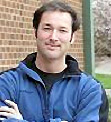
John Arthur Harrison, Ph.D.
John is currently a postdoctoral associate at Rutgers University’s Institute of Marine and Coastal Sciences, leading a collaborative, UNESCO-funded study of global river biogeochemistry. John has received a Sc.B. in biology from Brown University and a Ph.D. from Stanford University’s Department of Geological and Environmental Sciences. At Stanford, John studied nitrogen and carbon dynamics in polluted Mexican rivers. While in graduate school, John also founded and directed the Stanford Biogeochemistry Seminar. He is an avid old-time fiddler and outdoor enthusiast.
-
Earth Science
- The Carbon Cycle
- The Nitrogen Cycle
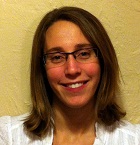
Christine Hoekenga
Christine is a freelance writer, editor, and content strategist, specializing in STEM (science, technology, engineering and math) topics. She holds a Bachelor's degree in Environmental Science and Media Studies from Willamette University and a Master's of Science Writing from MIT. Christine has a decade's worth of experience in science communication and education having worked as a journalist, an organizer for conservation groups, and an informal science educator. Before joining the Visionlearning team, she served as the New Media and Online Community Manager for the Webby award-winning Smithsonian Ocean Portal. Christine is assisting Visionlearning with developing new modules and glossary terms and with outreach through social media.
-
Math in Science
- Linear Equations
Scientists and Research
- Ellen Ochoa
- Tracking Endangered Jaguars across the Border
Ulyana Horodyskyj Pena, Ph.D.
-
Earth Science
- Ocean Currents
- Water in the Atmosphere
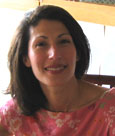
Natalie H. Kuldell
Natalie is an Instructor in the Division of Biological Engineering at the Massachusetts Institute of Technology. She is currently developing and teaching laboratory classes required for students interested in the planned Biological Engineering major, an emerging discipline that uses engineering principles to approach biological questions, at MIT. From 1997 through 2003, Natalie was a faculty member at Wellesley College where she designed and taught investigative laboratories in molecular genetics, cell physiology and cell biology. She also served as lecturer for the accelerated class in introductory cell biology. Natalie's research interest is eukaryotic transcription, specifically how the elongation phase of transcription is regulated. She conducts her research at MIT as well as at Harvard Medical School where she is a visiting scientist in the laboratory of Dr. Fred Winston.
-
Biology
- Independent Assortment
- Inheritance
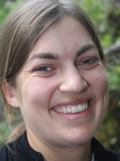
Gina Lappé
Gina is a masters candidate at Stanford University in the Earth Systems Program. She is focusing in environmental education and communication and hopes to pursue a career in science education after graduating in June 2011. Her interests include the role of science education in early schooling, the integration of outdoor education and sense of place into public education, and communicating science to the general public through print and media sources.
-
Scientists and Research
- Collaborative Research in the Arctic Towards Understanding Climate Change
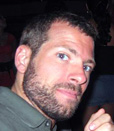
Nathan H Lents, Ph.D.
Professor Nathan H. Lents is a tenured associate professor of molecular biology at John Jay College of the City University of New York, a visiting professor at the University of Lincoln (UK), and author of "Not So Different: Finding Human Nature in Animals" (Columbia University Press, 2016). Professor Lents conducts research in three areas: forensic botany, the human microbiome, and teaching/learning biology at the college level. His work has been funded by the NIH, NSF, US Dept. of Ed, and the Susan G. Komen Breast Cancer Foundation. He also maintains The Human Evolution Blog and authors most of its content.
-
Biology
- Biological Proteins
- Blood Biology I
- Cell Division I
- Cell Division II
- Cellular Organelles I
- Discovery and Structure of Cells
- DNA I
- DNA II
- DNA III
- Energy Metabolism I
- Energy Metabolism II
- Future of Human Evolution
- Gene Expression
- Introduction to Paleoanthropology
- Lipids
- Membranes I
- Membranes II
- Origins of Life I
- Origins of Life II
- Photosynthesis I
- Population Genetics
- The Piltdown Hoax
- Tracking Human Ancestry
Scientists and Research
- An Elegant Experiment to Test the Process of DNA Replication
Judi Luepke, PhD.
-
Chemistry
- Nuclear Chemistry I
- Substances
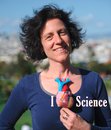
Robin Marks, M.A.
Robin is a science writer, educator, recovering biochemist, and all -purpose nerd. She is the sole proprietor of Discovery Street Science (https://www.discoverystreetscience.com), an education and communications company in San Francisco. Robin crafts curriculum in chemistry, life science, environmental science, and engineering, as well as tutoring high school students in these subjects. She has penned science curricula for Pearson Education, The Smithsonian, Carolina Biological, PBS, and the National Academies Foundation, among others. In addition, Robin operates Discovery Street Tours, offering science-themed walking tours in San Francisco, and hosts Science Trivia contests for local science groups and brainy businesses. Prior to launching Discovery Street, Robin spent two decades as a science writer and reporter, working for the Exploratorium in San Francisco, as well as NPR stations around the U.S. and news organizations abroad. She holds a degree in biochemistry from the University of Minnesota, but left the lab behind after her first paper came back from peer review with the comment, "too creative." She relishes experiments in the kitchen, and her favorite element is sodium because it tastes good and explodes in water.
John Nishan
-
Biology
- Photosynthesis I
Thomas Pasquini, Ph.D.
-
Physics
- Kinematics I
- Kinematics II
Emily Pope, Ph.D.
-
Earth Science
- Ocean Currents
Devin Reese, PhD.
Julia Rosen, Ph.D.
Julia Rosen is a freelance science writer based in Portland, Oregon. She writes about earth science, energy, climate, and food, although she can get interested in just about anything. Her work has appeared in the Los Angeles Times, where she worked as an AAAS Mass Media Fellow, Science News, EARTH Magazine, Eos, and elsewhere. Find more of her work at www.julia-rosen.com and follow her on Twitter @ScienceJulia.
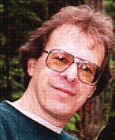
Alfred L. Rosenberger, Ph.D.
Alfred has worked at the Smithsonian Institution's National Zoological Park conducting research on the conservation biology of monkeys, and at the Smithsonian's National Museum of Natural History, as a Digital Curator for electronic educational outreach. Before he was an Associate Professor of Anthropology at the University of Illinois at Chicago. He has developed educational kiosks and websites focusing on the biology of mammals as well as new research methods involving three-dimensional virtual specimens. His scientific research emphasizes the evolutionary history and adaptations of South and Central American monkeys and the origins of anthropoid primates, which is the taxonomic group to which we belong with monkeys and the more conventional apes. He is forever fascinated by the challenge of creating a multi-disciplinary story of primate evolution. He learned early on, while working toward a Ph.D in Biological Anthropology at the City University of New York, that the study of skulls, skeletons and teeth of museum specimens and fossils makes a lot more sense when one also spends time chasing monkeys in the rain forest to learn what the animals actually do.
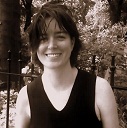
Jessica Ruvinsky, Ph.D.
Jessica is a science writer based in Santa Monica, California. She has a doctorate from Stanford University, where she studied plant evolutionary biology before becoming an editor at Discover magazine. She has also written for Science, The Economist, and US News & World Report.
-
Scientists and Research
- From Stable Chromosomes to Jumping Genes
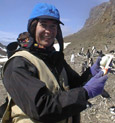
Iris Saxer, M.A./M.S.
Iris is a Penguin Biologist at the Antarctic Ecosystem Research Division with extensive skills in research and teaching. She has taught Wilderness First Aid at Wilderness Medicine Institute and she is a Senior Instructor with the NOLS.
-
Biology
- Adaptation
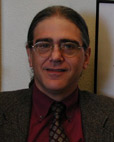
Carl Shuster, M.A./M.S.
Carl is an Instructor of Anatomy & Physiology, Genetics and Environmental Science at Madison Area Technical College. He obtained his M.S. in Biology from the University of New Mexico, Albuquerque, New Mexico. His research experience includes five years at the Museo Nacional de Historia Natural de Paraguay and the Paraguayan Office for the Convention on the International Trade of Endangered Species. He is active in online teaching and distributed education, especially in the area of Anatomy and Physiology.
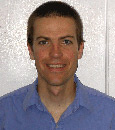
Nathaniel Page Stites, M.A./M.S.
Page currently teaches high school math at the Providence Country Day School, in East Providence, Rhode Island. He earned his B.S. in Geological and Environmental Sciences and his M.S. in Geophysics, both from Stanford University. Page worked for two years at the United States Geological Survey, where he helped to implement pseudo-real-time representations of low frequency crustal deformation data. He is also a trained wooden boat builder and loves to do woodworking in his spare time.
Kenrick Vezina
-
Biology
- Respiration
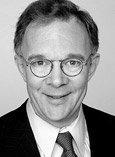
Gary Leo Welz, M.A./M.S.
Gary is an Instructor in the Mathematics Department at John Jay College, CUNY. He has over 20 years of experience in education and media as a teacher, writer, speaker, producer, consultant and journalist. He has special expertise in digital media production, digital asset management and digital content distribution. Before joining the Media Lab he was a Senior Business Consultant in the Media Services Group of the data storage giant EMC Corporation. Gary is the author of numerous conference papers and trade press articles about the development of the media industry on the Internet and multimedia technologies.
-
Math in Science
- Wave Mathematics
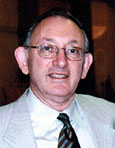
Morris S. Zedeck, Ph.D.
Morris received his Ph.D. in Pharmacology from the University of Michigan in 1965. He spent two years as a postdoctoral fellow and one year as assistant professor in the Department of Pharmacology at Yale University School of Medicine. He worked at the Memorial Sloan-Kettering Cancer Center with a joint faculty appointment at the Cornell University Graduate School of Medical Sciences for approximately 15 years, where he studied the pharmacological and toxicological effects of cancer chemotherapeutic agents, of chemical carcinogens and of other drugs and chemicals. Morris has published approximately 75 papers and abstracts which include original scientific research, chapters, reviews and an edited book. Currently, he is President of the Zedeck Advisory Group, Inc., New York, and serves as consultant to attorneys and as an expert witness in the areas of pharmacology and toxicology in criminal and civil matters. He recently retired from the Department of Sciences at the John Jay College of Criminal Justice.
-
Biology
- Membranes and Chemical Transport
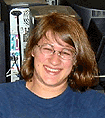
Jessica E. Zimmer
Jessica is a doctoral student in Anthropology at the University of Florida. She has developed gallery and online museum exhibits with the American Museum of Natural History, the Asia Society, the Contemporary Arts Forum, the Museo Italo-Americano, the Santa Barbara Museum of Art and the Exploratorium. She started in bilingual education as a peer educator in English as a Second Language classes in northern California and later worked as a teacher’s assistant in bilingual K-12 classrooms in southern California. Jessica is a freelance journalist for the New York Times Company. Her current research interest is Southeastern archaeology.

 Post
Post Tweet
Tweet Send
Send